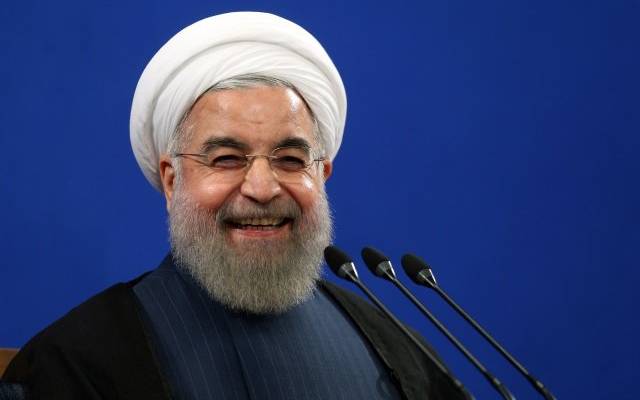A commonly-used Washington framework to describe Iranian politics is that the government is split between “hardliners” who support global terrorism and “moderates” who are willing to cooperate with the West. But on issues like Holocaust denial, the moderates are doing “a good job of disguising” any differences between themselves and the hardliners.
At issue was a New Yorker interview last month with the “moderate” foreign Minister Mohammad Javad Zarif, who denied that an upcoming Holocaust cartoon contest to be hosted by the municipality of Tehran had anything to do with the national government.
But, the editorial observed, “it didn’t take long for this dissembling to be challenged. What was interesting is that some of the pushback came from Mr. Zarif’s own government.” A spokesman for Iran’s Ministry of Culture and Islamic Guidance said that his ministry did indeed support the exhibition, as well as other event that “enlighten people about the Holocaust.” A contest organizer acknowledged that it had received support from the ministry. The United States Holocaust Memorial Museum also reported that one of the groups sponsoring the contest is funded by Iran’s parliament, and another by the Islamic Revolutionary Guard Corps, Iran’s elite extraterritorial militia.
Zarif also claimed in the New Yorker interview that public exhibitions can take place in Iran without government approval. “We’ll believe that as soon as the first festival of liberal democracy takes place,” the Post noted.
In addition to his “dissembling” about the contest, the Post recalled that while its Tehran correspondent Jason Rezaian was jailed for a year and a half, Zarif “offered public support for the absurd and mendacious claim that Mr. Rezaian was guilty of espionage.”
“Dividing Iran into ‘reasonable’ and ‘unreasonable’ forces is [not] correct, conducive, or anybody’s business,” Zarif told The New Yorker. “On that, we’ll take Mr. Zarif at his word,” the Post responded.
The Washington Post endorsed the nuclear deal with Iran last year, albeit with strong reservations. Since then, they have urged White House to take a stronger stand against ongoing Iranian provocations. An editorial last month called on the Obama administration to penalize Iran for its continuing ballistic missile tests in violation of United Nations Security Council resolutions.
The administration has come under heavy criticism in recent days after a New York Times Magazine profile of Ben Rhodes, a top Obama foreign policy aide, revealed that the administration lied when they said that the election of the “moderate” Hassan Rouhani as president of Iran would present a unique opportunity to conclude a nuclear deal. The report also quoted former Defense Secretary Leon Panetta saying that knowing what he knows now, he would “probably not” have believed that President Barack Obama was ever serious about preventing Iran from developing a nuclear weapon.
By: TheTower.org










